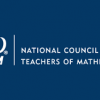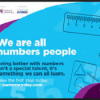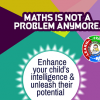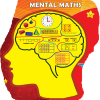- Empty cart.
- Continue Shopping
Why Is Maths So Important for Kids to Learn?

Many kids ask their math teacher why learning a particular mathematical concept or skill is important. When helping kids out with their homework, many parents may wonder the same thing. Mark H. Karwan, the Dean of Engineering and Applied Sciences at the University of Buffalo, points out that parental attitudes — positive or negative — can influence children’s attitudes about math, and ultimately their performance. Encourage your child to excel in this area, as he’ll have increased functioning and opportunities in his life and career as a result.
Teaches Logical and Critical Thinking
Math teaches logic and order. You can expect a mathematical equation to have a predictable outcome, and precise steps must be followed in order to attain that result. The discipline of mind that children develop in math class can carry over into everyday life. Companies know this, as some businesses will hire math majors based on the presumption that students who are good at math have learned how to think. Math can also provide a vehicle through which critical-thinking skills are put into practice and refined. An example of mathematical critical thinking is when students are required to explain how they arrived at a solution to a complex problem or to describe the ideas behind a formula or procedure.
Teaches Life Skills
It is next to impossible to live an independent life without basic math skills. Children begin to learn about money in the early elementary grades, and in later grades can calculate percentages and fractions. People must have these skills in order to follow a recipe, evaluate whether or not an item on clearance is a good deal and manage a budget, among other things. Financial analyst Mike Walker points out that kids must be proficient at math in order to buy a car without getting taken for “the wrong kind of ride.”
Supports Continuing Education and Careers
Even entry-level jobs in fields seemingly unrelated to mathematics require math skills. Cashiers must be able to count money accurately, while a customer service representative may need to be able to discuss a discrepancy in a customer’s bill. Students who are skilled at math and who seek a higher degree will find that high-paying careers such as engineering, medicine and research become available to them. Students who are not interested in these careers must nonetheless have advanced math skills, as they are required to graduate with a bachelor’s degree in any field. Students who have better math skills than their peers may obtain scholarships based on their superior performance on assessment tests such as the SAT and ACT.








